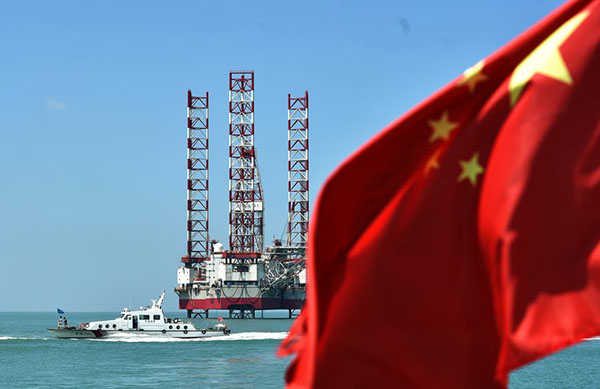 |
|
Chinese naval ships patrol the waters off the Qiongzhou Strait in South China, in this Sept 23, 2015 file photo. [Photo/Xinhua]
|
Given on Japanese Prime Minister Shinzo Abe's remarks on South China Sea disputes during the gathering of G20 leaders in Turkey, he is highly likely to raise the issue again at the forthcoming APEC meeting and East Asia summit, emphasizing freedom of navigation and indirectly targeting China's reclamation projects. But as an outsider to the disputes in the South China Sea, Japan will only expose the absurdity of its stance if Abe raises the issue.
Hopefully, Abe will refrain from taking such a ridiculous step, because it will be good neither for Japan nor regional stability. In fact, for quite sometime now, some Japanese politicians have been saying that China - because of its economic slowdown, increased military budgets and lack of military transparency - has been exporting deflation to and destabilizing the Asia-Pacific region. The truth, however, is that the South China Sea disputes are just another card that Abe is trying to use to hype the "China threat" theory.
China's rapid economic growth, which made it overtake Japan as the world's second-largest economy in the world, is the main cause of worry for Japan. China's rise has fundamentally changed the geopolitical pattern of the Asia-Pacific. As a result, Japan has lost much of its influence on regional economic development and its leaders have lost their psychological balance.
Japanese leaders' mentality suggests they don't have enough courage to face the changing reality of the times, which is not good for Japan. If they don't change their mentality, they will only hurt the cooperation between China and Japan, and prevent bilateral relations from improving.


 Stars of Lijiang River: Elderly brothers with white beards
Stars of Lijiang River: Elderly brothers with white beards
 Wealthy Chinese children paying money to learn British manners
Wealthy Chinese children paying money to learn British manners
 Military-style wedding: Fighter jets, grooms in dashing uniforms
Military-style wedding: Fighter jets, grooms in dashing uniforms
 Striking photos around the world: May 16 - May 22
Striking photos around the world: May 16 - May 22
 Robots help elderly in nursing home in east China
Robots help elderly in nursing home in east China
 Hanging in the air: Chongqing holds rescue drill
Hanging in the air: Chongqing holds rescue drill
 2.1-ton tofu finishes in two hours in central China
2.1-ton tofu finishes in two hours in central China
 Six things you may not know about Grain Buds
Six things you may not know about Grain Buds














